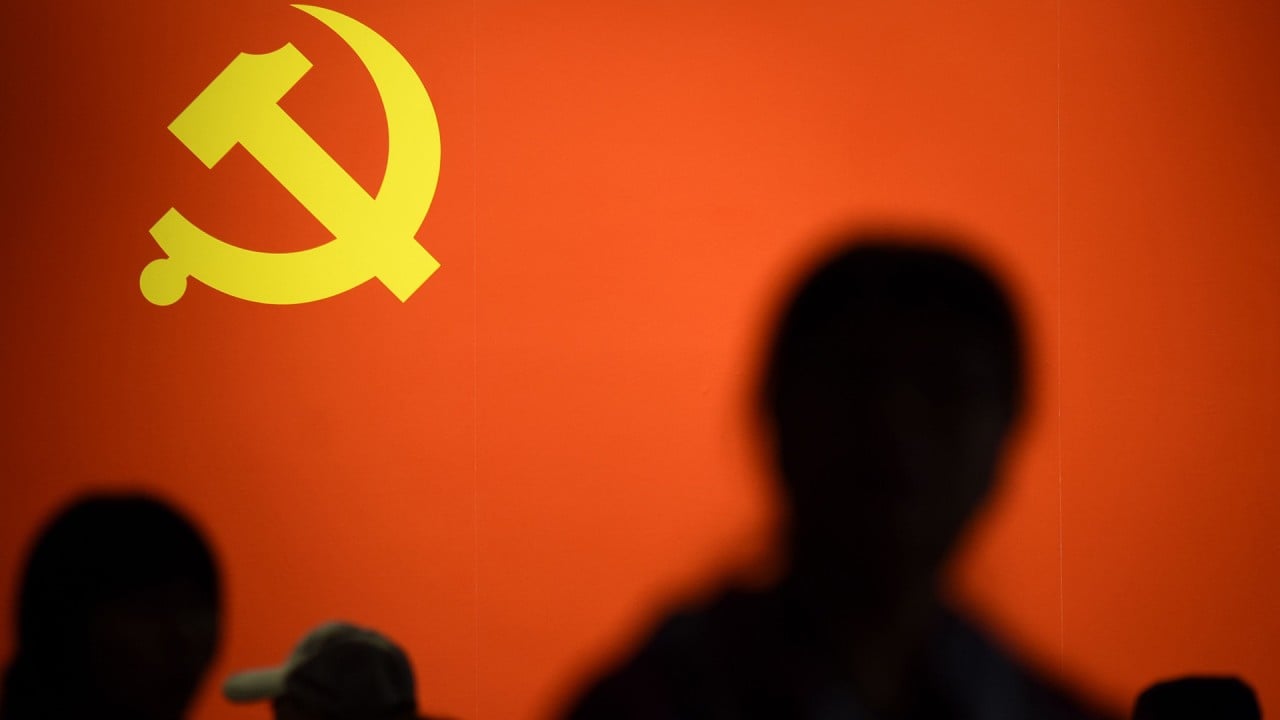
Chinese pressure blamed as Xi Jinping book events are cancelled in Germany
- Lectures on the book, co-authored by a pair of German journalists, were pulled at the last minute. One cancellation came after a Chinese consulate intervened
- The embassy in Berlin slammed what it saw as irresponsible remarks but did not deny the chain of events as reported
The book, titled Xi Jinping – the Most Powerful Man in the World, is authored by Stefan Aust, a journalist who once served as the editor-in-chief of the weekly news magazine Der Spiegel, and Adrian Geiges, a veteran China correspondent for Hamburg-based weekly current affairs magazine Stern.
The pair were due to present the book at the Confucius Institutes at the Leibniz University of Hanover and the University of Duisburg-Essen, according to Bild on Saturday. China runs a total of 13 Confucius Institutes with different educational institutions in Germany.
The event scheduled for Wednesday at Duisburg-Essen was suddenly cancelled, state-owned broadcaster Deutsche Welle reported. Bild reported that Feng Haiyang, the consul general of China in Düsseldorf, had personally intervened.
The event was cancelled due to Chinese pressure, the book’s publishing company Piper Verlag told Bild. “You can no longer talk about Xi Jinping as a normal person, he should now be inviolable and unspeakable,” Bild quoted Piper as saying.
“The cancellation of the event by the two Confucius Institutes is a disturbing and disturbing signal,” Piper publisher Felicitas von Lovenberg said, according to Bild.
Japan, South Korea join growing backlash against Confucius Institutes
The Chinese embassy took issue with what it saw as irresponsible remarks over the weekend. However, it did not deny the chain of events as reported.
“It should be pointed out that the planning and development of various activities of the Confucius Institute is always based on the full communication between the partners, which is in line with the common interests and concerns of both parties,” the embassy said on Saturday.
“China has always supported the construction of the Confucius Institute as a platform for comprehensive and objective understanding of China in the spirit of ‘mutual respect, friendly consultation, equality and mutual benefit’. However, we firmly oppose the politicisation of academic and cultural exchange activities,” a statement posted on the embassy website said, without giving details of the book event in trouble.
The Chinese embassy in Berlin did not immediately respond to requests from the Post for further comment.
The controversy comes at a time of increased scrutiny over the position of Confucius Institutes in European academia, and amid wider concerns around perceived Chinese interference and censorship in European institutions.

02:33
How China censors the internet
In a testimony given to the European Parliament’s Special Committee on Foreign Interference last month, Vanessa Frangville, professor of China Studies at the Université libre de Bruxelles (ULB), described a Confucius Institute at its sister institution, Vrije Universiteit Brussel (VUB), as “a simple lobbying platform [dedicated] to the European Union for economic policies, for Huawei, for the Silk Road”.
Frangville, former co-chair of the Confucius Institute at ULB, however accused the organisations of mission creep – in aiming to ensure that any teaching on China would eventually reflect the strategic goals of the government in Beijing.
“Clearly, the institutes themselves provide a framework for the overall academic discussion of the host university. So any teaching of China will then be completely controlled by the Confucius Institute, they will have rubber-stamp control on anything going on at that university subject to the control of their own staff, and ensure that the Confucius curriculum becomes the curriculum of the host European university,” she said.
Why China should rethink how its Confucius Institutes operate
In Ireland, academics at University College Dublin (UCD) have raised concerns over a spin-off of the on-campus Confucius Institute – the Irish Institute for Chinese Studies – teaching a class in Chinese politics.
Two UCD politics professors, David Farrell and Alexander Dukalskis, wrote in The Irish Times last month that “it was inappropriate for an entity linked with an illiberal state to teach UCD students about its own political system as part of their degree programme”.
“There are real concerns about illiberal incursions on Ireland’s academic freedom. Higher education leaders need to think more carefully and enact plans to protect academic integrity in Ireland,” they added.

04:12
US education says no to Chinese resources
In August, Swiss newspaper Neue Zuercher Zeitung reported that a PhD candidate at the University of St Gallen had been dismissed from his course because he had sent out critical tweets about China.
Just last week, meanwhile, the mayor of the northern Italian city of Brescia said that he would push ahead with a show by cartoonist Chinese dissident Badiucao despite pressure from the Chinese embassy in Rome to cancel the event.
Emilio Del Bono told Il Foglio newspaper on Friday that the show would run as planned between November and February, even after the embassy had written a letter saying Badiucao’s works were “full of anti-Chinese lies”.
Italian city defies China embassy call to cancel ‘Chinese Banksy’ show
China researchers elsewhere in Europe have voiced alarm over efforts to stifle criticism. Some European think tanks and academics have been targeted with sanctions, while others face attacks in state media or from diplomats.

02:13
‘South Park’ creators issue mocking ‘apology’ after China reportedly bans animated sitcom after an episode on Beijing censorship
An earlier email read: “Are you sleeping well? You should be in very big stress, when you are walking down the street …”
The exchange was an isolated incident – which institute director Luboslav Stora later apologised for and passed off as “a joke” – but was also seen as part of a wider pattern in China’s alleged attempts to muzzle criticism in Europe.



